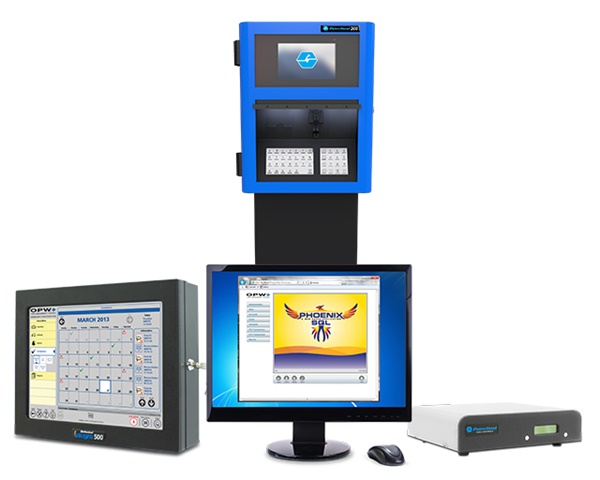Just as government fleet managers hope to get a lot of mileage out of the vehicles they send out on the road, government fuel site managers hope to get a lot of mileage out of the fuel control equipment used to manage their fuel assets.
Federal, state and municipal fleets that support their own unattended fleet fueling operations have greater control of one of their costliest expenses — their fuel. By cutting out the middleman, they have a better command over how much they pay for fuel (wholesale vs. retail) over the long term. In addition, cardlock systems that control the authorization of fueling and capture data about fueling supply and consumption enable public sector fleets to manage their fuel assets even more tightly.
One of the most cost-effective ways to achieve the greatest mileage out of fuel control equipment is to develop a long-term fuel management equipment acquisition strategy. Fleet managers who make the following considerations when developing their fuel management equipment strategy will position their fleet to fully maximize their investments.
1. Make the most of timing
Increase awareness of cost cycles and take advantage of them to optimize the timing of capital investments. Fuel prices have remained relatively flat in recent years. Unfortunately, some fleet managers have become somewhat complacent about cost reduction. Without unstable fuel prices overwhelming budgets, motivation to pursue cost-cutting strategies has been more absent than when gas was $4 a gallon. But consider this: fuel cost is consistently a major contributor to a fleet's overall operating cost per mile — in good economic times and in bad. By investing capital that materializes when costs are running flat to fund fuel management solutions that will help your fleet minimize budgetary pain during times of rising costs, fleet managers can proactively protect their budgets for whatever the future brings.

A long-term fuel management equipment acquisition strategy is one of the most cost-effective ways to achieve the greatest mileage out of fuel control equipment.
2. Invest in modularity, upgradeability and scalability
No technology is 100 percent future-proof. But investing in equipment that is easily upgradeable substantially increases that equipment's service life. For instance, OPW Fuel Management Systems recently introduced its Petro Vend 200 (PV200) Fuel Island Terminal, which can be scaled up or down to meet the specialized needs of public sector fleets, big or small. The PV200 is part of a family of fuel control solutions from OPW Fuel Management Systems that support future adaptability, including OPW's FSC3000™ Fuel Site Controller and Phoenix fuel management software. The FSC3000 enables flexibility through a wide selection of popular card brands and expandable memory that ranges from 2,000 to 64,000 cards. In addition, OPW's suite of Phoenix fuel management software offers powerful data analytics to fleets of every size and configuration — from single work-station style operations to multi-site networks.
Upgradeable fuel control systems such as those from OPW offer government fleets the following benefits:
- Longer service life
- Reduced downtime and lower installation costs
- Flexibility to adapt to changing/expanding needs
- Reduced capital costs over the long-term
- Reduced training costs
- Increased efficiencies through system enhancements
3. Capture and leverage data to create operational efficiencies
Public sector fleets that pursue an upgradeable fuel management system are in the strongest position to maximize today’s software solutions. Today's fuel management software does much more than track "fuel in, fuel out." Fuel management software, such as Phoenix from OPW Fuel Management Systems, automates manual fuel management processes to create efficiencies through many parts of a public sector fleet fueling operation. While knowing where every drop of fuel is going is important to loss prevention, it is just the tip of the iceberg when it comes to modern fuel management capabilities. From streamlining compliance reporting management to interfacing with fleet maintenance and back-office software, Phoenix leverages powerful metrics that will enhance many facets of government fleet management.
A fleet's vehicles aren't the only assets that need to perform reliably and cost-effectively over the long haul. For fleets that support their own unattended fueling operations, equipment selection is key. By relying on equipment solutions designed to anticipate inevitable changes in technology and the market — plus some prudent budget planning — fleet managers can develop a fuel management strategy that bolsters their bottom line today and well into the future.
About the Author
Bobby Hayes is the Domestic Sales Manager at OPW Fuel Management Systems in Hodgkins, IL. He can be reached at (770) 605-9611 or robert.hayes@opwglobal.com.